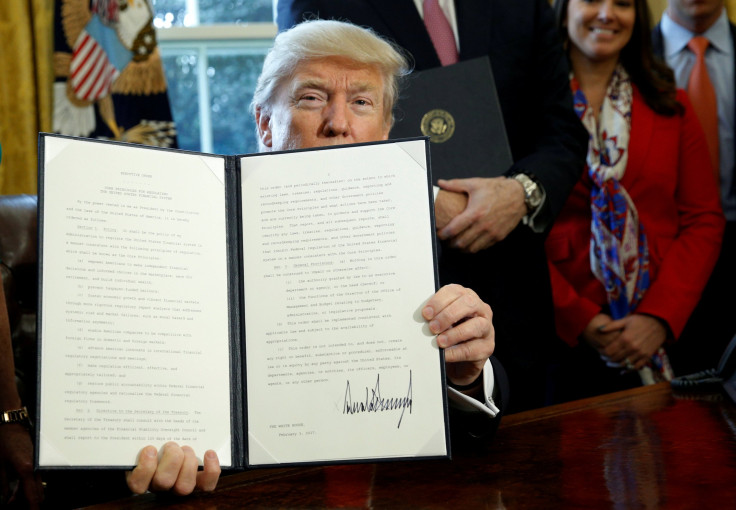Travel Ban Appeal Live Stream: Listen To Court Hearing Pitting Trump Against Washington And Minnesota

Three federal judges will hear oral arguments Tuesday in a case regarding President Donald Trump's executive order on immigration. The hour-long hearing, which was due to be conducted by telephone at 6 p.m. EST, will determine whether Trump can proceed with barring refugees and immigrants from seven Muslim-majority countries from entering the U.S.
The states of Washington, Minnesota and the Department of Justice are the plaintiffs in the case. Each side will have 30 minutes to make its argument.
The court has decided to live stream the hearing. You can listen to the oral arguments below:
The hearing comes after a federal judge in Seattle Friday temporarily blocked Trump's order. Trump later criticized the ruling, mainly attacking U.S. District Judge James Robart, calling him a "so-called judge" and disparaging his decision as "ridiculous."
The Justice Department also defended the ban as a "lawful exercise of the president's authority over the entry of aliens into the United States and the admission of refugees." It said the federal judge's order was an error and "vastly overbroad."
In contrast, Democratic lawmakers and 16 states’ attorneys general filed an amicus brief in support of the of the states’ suit, joining the American Civil Liberties Union and a group of more than 100 companies such as Apple, Facebook, Google, Netflix, Uber and eBay in fighting the order. The collective brief condemned the travel ban on the grounds that it was causing “substantial harm on U.S. companies.”
Some Republicans, including Sen. John McCain, R-Ariz., and Sen. Lindsey Graham, R-S.C., have also criticized the order.
"We fear this executive order will become a self-inflicted wound in the fight against terrorism," McCain and Graham said in a joint statement, adding that Trump's executive order "may do more to help terrorist recruitment than improve our security."
In addition, two former secretaries of state, John Kerry and Madeleine Albright, said the executive order was "ill-conceived, poorly implemented and ill-explained."
"We view the order as one that ultimately undermines the national security of the United States rather than making us safer," the Democrats wrote, arguing against Trump's claims that the ban would enhance national security.
© Copyright IBTimes 2024. All rights reserved.












